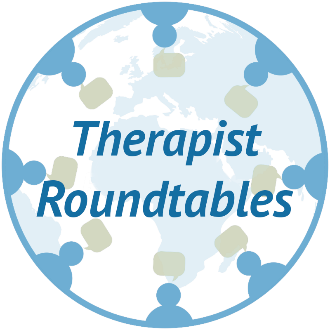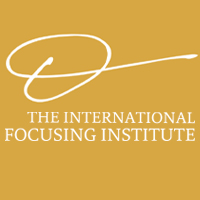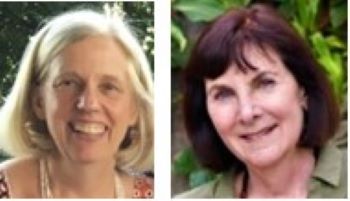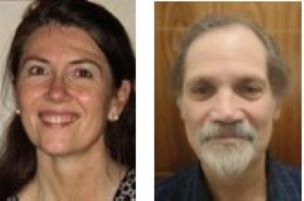Your Hosts




Where & When
A confirmation with the zoom link will be sent to registered participants the week of the event.
Live attendance required - no recording.
Wednesday, October 18, 2023 from 1:00 pm to 3:00 pm Eastern Time
Live attendance required - no recording.
Times worldwide: convert to your time zone
The TIFI Membership Committee is pleased to offer Therapist Roundtables, a Roundtable series designed especially for members who work with clients in therapeutic settings. If you are not a member, please join at this link and then return to this page to register.
Program Description
At our last Roundtable on “Psychotherapy in the Time of Existential Threat,” we explored our awareness, overwhelm, and what is needed to sustain ourselves and be present to ourselves and our clients in this time of existential threat. Our rich and moving conversation and listening challenged and inspired us to think about the role, purpose and function of action steps in FOT, not only in relation to that important issue, but in relation to any issue our clients may be working on.
We became intrigued by the question of how we might engender action and what gets in the way of us doing so in a more thoughtful way. So, in this Roundtable, we’ve decided to explore action steps or “what comes after the Ah-ha experience."
For insight we turned to chapter 17, “Action Steps” in Gendlin’s book, Focusing-Oriented Psychotherapy: A Manual of the Experiential Method (1996). In that chapter Gene offers a concrete explanation of the ways in which we, as Focusing-Oriented therapist’s, can encourage our clients to move from inner change to outward manifestation of that change.
As Focusing-oriented therapists, we know how much richness can be discovered in the felt sense and how experiential response is key to positive therapeutic change. We also know that when clients are able to fully access and stay with the felt sense, they can experience a “shift,” a step forward in their change process. As Gene wrote, “The felt shift changes the constellation of the whole problem and the person’s attitude toward it.” (p. 26)
However, Gene noted, “Inner and outer change go together and require each other. We may be convinced that inner change will lead to outer change, but it may not always be sufficient” (p. 227). Taking concrete outer action is not only important regarding outer life changes. It is also vital to the ongoing process of inner change. Gene explains:
In a human being the inner and out are two sides of the same life process….But our bodily feelings cannot change when our life and actions do not. (p. 237).
For that reason, Gene recommended that we seek to help our clients engage in outer action. He wrote:
When a client experiences a new bodily energy during therapy, it is sometimes a good idea to ask what change in action the client could make to ensure that the new bodily energy does not fade, and to manifest this change. It need not be a major action. (p. 228).
We look forward to a rich and enlightening conversation. We hope that our reading and talking together will broaden the ways we help clients carry their inner process and outer lives forward. At the Roundtable we will have an opportunity to share our reactions to the reading and our own experiences with our clients and ourselves. Some questions we will consider together include:
- What has been my experience with facilitating action by my clients?
- How have action steps helped my clients’ inner process to carry forward?
- What challenges ME as a therapist in facilitating action steps with myself and my clients?
- What arises in me when clients’ inner changes are not reflected in their lives?
- What can I take away from the reading and from our experience today to enhance my work with my clients?
Of course, other issues and ideas may emerge from our mutual exploration during the Roundtable.
Advance preparation: In preparation for this Roundtable please read chapter 17, “Action Steps” pp.227-237, in Gendlin’s book, Focusing-Oriented Psychotherapy: A Manual of the Experiential Method (1996). A link to the reading will be sent to you after you register.
Who might be particularly interested in attending this Circle?
Therapist Roundtables are intended to serve the needs and interests of a specialized subset of our membership community who use or have used therapeutic modalities deepened by Focusing. Current and former therapists are welcome, including psychotherapists, counselors, coaches, somatic practitioners, spiritual directors, occupational or physical therapists, nurses and the like.
Regardless of modality, therapists hold in common the ethical and professional accountability and responsibility for our clients’ healing and growth. It is with this understanding that we come together to explore both the challenges of our work and the opportunities that arise through bringing a Focusing orientation to our practices. These conversations are not intended to be professional supervision sessions, but rather an opportunity to share ideas and experiences with like-minded professionals.
If you have an area of interest, curiosity or passion that you would like to explore in a future Circle, please let us know.
CONNECTION>CONVERSATION>COMMUNITY
What to expect from Therapist Rountables: Each Therapist Roundtable is designed to promote informal peer-to-peer conversation. Rather than acting as expert presenters, the Hosts will serve as conversation moderators to encourage sharing and exploration of the topics from the participants’ own perspectives. All participants’ sharings are welcome and valuable, no matter what level of experience or knowledge you have on the topic. To preserve the nature of informal conversation, the program will be offered live only and no recordings will be available. Registration is limited and on a first-come, first served basis. Participants are encouraged to create follow up opportunities for connection among themselves after the Roundtable.
About your hosts:
Susan Lennox, PhD, CPC, is a psychotherapist and coach in private practice in Westminster, Colorado. She is a Focusing Coordinator and has been a Certified Focusing Professional since 2000. In her practice Susan integrates Focusing and Internal Family Systems into her work with clients with developmental trauma.
Steve Moscovitch, MSW is a therapist in Winnipeg, Manitoba, Canada. He has been a Certified Focusing Trainer since 2002 and has integrated Focusing and a Focusing orientation into his work in individual, couples and family therapy for 20 years of his 38-year career. Other significant recent trainings are Emotion Focused Couple Therapy and Internal Family Systems.
Julie Ramsey, LICSW, FOT, is a Focusing Coordinator and psychotherapist in private practice in Wellesley, MA. She works with adolescents and adults in individual and couples therapy. She also teaches Focusing in small groups and enjoys bringing Focusing to all aspects of her work and life.
Mary Anne Schleinich, MPS, BScOT is a counselling body psychotherapist in private practice in Calgary and online. She is certified with the Canadian Counselling and Psychotherapy Association and The International Focusing Institute as a Focusing Oriented Therapist. She integrates 14 years of work as an Occupational Therapist in palliative care, somatic psychotherapy with Bill Bowen and Internal Family Systems classes and group work.
Registration Information and Price
Registration Closes: Tuesday, October 17 at 12:00 pm (noon), or when the Roundtable is full, whichever is sooner.
Zoom: This conversation will take place on an online video conference service called Zoom. Please attend by computer so that we can have your video presence as well as your audio. Calling in by phone is also possible but not preferred.
Price: The co-hosts are volunteering their time in order that this program may be brought to members of TIFI at no charge.
PLEASE NOTE: When you register, you will receive an email indicating your registration was processed. If your dues are current, we will complete your registration and email instructions to join the event within a few days of the start date. If you know your dues are not current, or if you are not yet a member, please go to the membership page to pay your dues or join and then return to this page to register. Membership page: http://focusing.org/membership
